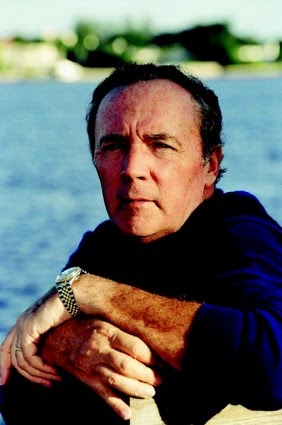That's why I found an article on the New York Times, "James Patterson Inc." so interesting. It's about how he very deliberately and methodically turned himself from a struggling author into a one-man industry. What struck me is how many techniques he used that self-published authors have been using and benefiting from at a time when such things were unheard of. He published multiple books a year when authors were told that would dilute their success, wrote strictly in popular genres like thrillers, made vibrant and "grabby" covers to appeal to people who didn't normally read books, handled his own marketing and treated it as a product instead of a work of art, created a book trailer in the form of a TV commercial when people thought you couldn't sell books in commercials, wrote books in series to drive sales of his backlist, wrote books specifically to boost sales (he set a novel in San Francisco because he wanted to boost sales in San Francisco), and wrote in multiple genres without using pen names to boost his brand.
Patterson's critics hate all of those things, but also point to the fact he publishes so many books with his name on them that are actually written by other authors. I think Patterson should get a little more credit. He doesn't just give story ideas to his co-authors, he writes detailed outlines. His writing partners are more like ghost writers, as he described:
With the co-writing, I'll write a long outline, anywhere from 60-80 pages, and pretty much every chapter is dealt with, at least 80 percent of the chapters. I then ask the cowriter to contribute to the outline. For two reasons: two heads are better than one, but I also want them to feel that they're part of the process, that they've contributed throughout, even early on with the outline. I then ask that I see pages every few weeks. Unlike with the publisher, a year later or 18 months later you turn in the manuscript, and they might say, "Well, that isn't quite what I expected!" It isn't like that. I think it's better, every couple of weeks, to get some pages and talk. Sometimes it's just "This is terrific, I love the way it's going," and sometimes it's "We've come off the tracks somehow." If I don't like the characters or if I'm finding it predictable--if I know where it's going, then I won't want to read anymore. Ultimately, when I get the full draft from the co-writer, I'll then polish and/or write several more drafts myself, depending.A sixty-page outline? That's almost a novella by itself. He's a hard-working man who deserves his success, and I wish I had a fraction of it.
What do you think of Patterson?
To hear about my new releases first and get a free short story, sign up here. Your email will never be shared, and you'll only receive messages about new releases.


No comments:
Post a Comment
To be the first to find out about my new releases, as well as a free ebook, sign up here: http://eepurl.com/xALKv.